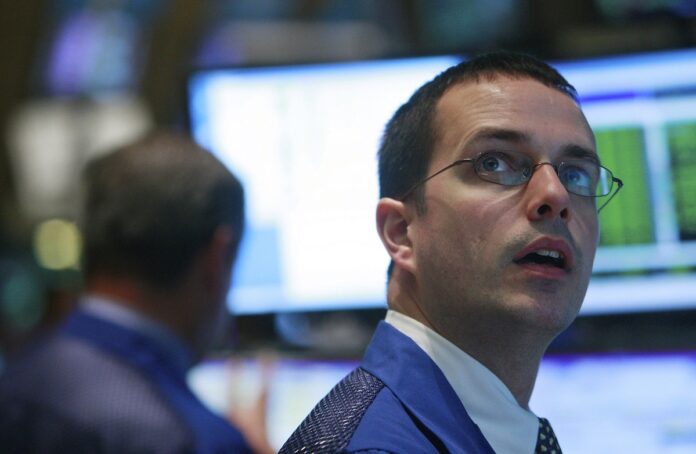Among the Dow Jones Industrial Average’s 30 components, there are two historically cheap brand-name companies, as well as a new member that’s priced for perfection in an imperfect industry.
The second year of Wall Street’s bull market rally didn’t disappoint, with all three major stock indexes hitting fresh all-time highs. This includes the ageless Dow Jones Industrial Average (^DJI 0.25%), which reached a record-closing high of more than 45,000 on Dec. 4.
Since its inception in May 1896, the Dow Jones has served as a barometer of Wall Street’s health. Over the last 128 years, it’s evolved from an index that contained 12 mostly industrial stocks to one that now houses 30 time-tested, multinational businesses.
Although the Dow has a rich history of heading higher over the long run, it doesn’t mean every component is necessarily worth buying. As we push into the new year, two Dow stocks stand out as incredible values, while another recent addition appears priced for perfection.

Image source: Getty Images.
Dow stock No. 1 to buy hand over fist in 2025: Coca-Cola
The first Dow Jones Industrial Average component that makes for a no-brainer buy in the new year is none other than beverage giant Coca-Cola (KO 1.43%).
The beauty of consumer staples stocks is the predictability of their operating cash flow. Coca-Cola provides a good (beverages) which is going to be purchased by consumers in any economic climate, which leads to transparent and predictable cash flow year after year.
This is a particularly important catalyst for Coca-Cola in 2025 considering that this is the third-priciest stock market on record, when back-tested more than 150 years. When the stock market is historically pricey, it’s not uncommon for volatility to creep into the picture, and for investors to seek the safety of time-tested consumer staples like Coca-Cola.
Coca-Cola also has the advantage of virtually unparallelled geographic diversity. It has ongoing operations in every country around the globe except Cuba, North Korea, and Russia. Having a worldwide presence ensures consistent cash flow from developed countries and can bolster its organic growth from emerging markets.
Furthermore, consumers know and love Coca-Cola’s products. Kantar’s “Brand Footprint” report has labeled it the most-chosen brand from retail shelves for 12 consecutive years. This is a testament to the company’s top-notch marketing team, which has done a phenomenal job of engaging all audiences.
Another reason investors can trust Coca-Cola is its rock-solid capital-return program. In February 2024, the company’s board increased its payout for a 62nd consecutive year. Very few publicly traded companies offer a longer streak of continuous base annual payout increases.
Lastly, Coke’s stock is relatively inexpensive in a pricey market. Its forward price-to-earnings (P/E) ratio of 20.5 represents a 12% discount to its average forward P/E ratio over the trailing-five-year period.

Image source: Getty Images.
Dow stock No. 2 to buy hand over fist in 2025: Johnson & Johnson
A second Dow Jones stock that can be confidently bought in the new year is healthcare conglomerate Johnson & Johnson (JNJ -2.71%), which is commonly referred to as “J&J.”
Similar to Coca-Cola, one of the most attractive aspects of J&J’s operating model is that it’s highly defensive. Since we don’t get to choose when we become ill or what ailment(s) we develop, demand for prescription medicines and medical devices tends to be consistent regardless or how well or poorly the U.S. economy is performing. Prior to the COVID-19 pandemic, this consistency of demand led J&J to 35 consecutive years of adjusted operating earnings growth.
Another reason Johnson & Johnson’s earnings per share (EPS) has continued to motor higher is because of its focus on novel-drug development. Although brand-name drugs have finite periods of sales exclusivity, they generate high margins and afford J&J substantial pricing power. Oncology has been a particular bright spot for Johnson & Johnson, with sales growth of 19.3%, excluding currency movements, through the first nine months of 2024.
However, J&J also has a world-leading medical device/technologies segment that perfectly complements its growing novel-drug portfolio. An aging global population that’s gaining easier access to preventative care should lead to higher demand and improved pricing power for J&J’s med-tech solutions over time.
Additionally, Johnson & Johnson offers virtually unrivaled leadership continuity. Since the company’s founding in 1886, J&J has had just 10 CEOs, including current CEO Joaquin Duato. The lack of a carousel in key leadership positions ensures that growth initiatives are being properly implemented.
To build on J&J’s safety, it’s one of only two remaining public companies to sport the highly coveted AAA credit rating from Standard & Poor’s. Even with the company working its way through litigation concerning its now-discontinued talc-based baby powder, J&J has more than enough cash on its balance sheet to cover a potential settlement.
The valuation makes a lot of sense as well. Johnson & Johnson’s forward P/E of 13.7 is a 14% discount to its average forward-year earnings multiple over the last five years.
The Dow Jones Industrial Average stock to avoid in 2025: Nvidia
However, not every Dow component is a bargain in today’s pricey stock market. The one I’d suggest steering clear of in 2025 is none other than the Dow’s newest member, Nvidia (NVDA -0.02%).
A lot has gone right for Nvidia over the last two years. The company’s graphics processing units (GPUs) are the undisputed top choice for businesses operating artificial intelligence (AI)-accelerated data centers. Orders for Nvidia’s Hopper (H100) GPU and successor Blackwell chip are backlogged, which has led to notable pricing power for the company and a sizable uptick in its gross margin.
But an argument can be made that Nvidia’s more than $3 trillion in market cap gained over two years prices the company for perfection in an imperfect industry.
The biggest catalyst for Nvidia has been AI-GPU scarcity. When demand for a good or service outstrips its supply, prices go up. But with external competitors introducing their own GPUs and increasing production, it’s going to be easier for businesses to get their hands on AI-accelerating chips.
What’s more, internal competition is a genuine concern for Nvidia. Many of its top customers by net sales are developing AI chips that they’ll use in their data centers. While these chips likely won’t be able to match the computing speed of Nvidia’s Hopper or Blackwell, they will be considerably cheaper and more readily available. In other words, it may cause Nvidia to lose out on future opportunities.
History isn’t exactly on Nvidia’s side, either. Every game-changing innovation over the last three decades has navigated its way through a bubble-bursting event early in its expansion. With most businesses lacking concrete plans for their AI investments, there’s a realistic chance AI is the next in a long line of next-big-thing investment bubbles.
Finally, Nvidia’s valuation is worrisome. While some traditional valuation metrics, such as the forward P/E, aren’t egregiously high, Nvidia’s price-to-sales (P/S) ratio of 31 is consistent with prior market leaders of next-big-thing innovations before the bubble burst.



